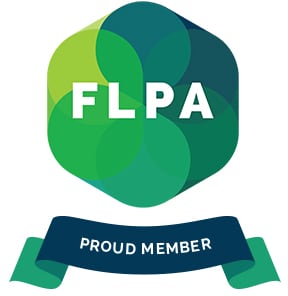Child support payments in Queensland aim to cover a child’s basic living costs like food, clothing, housing, education fees, medical/dental expenses, transportation, and recreational activities.
The goal is for the child to enjoy a similar standard of living as if the parents lived together.
Many factors go into calculating exactly what expenses are covered under a child support assessment, however.
In Queensland, child support is typically determined by the Department of Human Services (DHS) under the Family Law Act 1975 and the Child Support (Assessment) Act 1989, however, many parents prefer to establish their own arrangements.
These can take the form of Binding Child Support Agreements or Limited Child Support Agreements, allowing greater flexibility tailored to their unique circumstances.
This guide explores these different considerations in depth to provide a comprehensive overview of what child support covers in QLD and what you can do if you’re unhappy with the DHS assessment.
What Child Support Covers in Queensland
As mentioned, child support payments are meant to cover the basic living costs and expenses associated with raising a child.
The goal is for the child to enjoy a similar standard of living they would have if their parents still lived together.
While child support does not necessarily cover every single expense related to the child, and the specific expenses can vary case-by-case, child support generally accounts for costs in these key areas:
General Living Costs
- Food, groceries
- Clothing, shoes
- Housing (rent/mortgage, utilities)
- Personal care items
- Household goods and repairs
Education Expenses
- School fees and levies
- Textbooks and supplies
- School uniforms
- Extra-curricular activities (sports, music, etc.)
- Tutoring or academic support
Medical/Dental Costs
- Doctor/hospital visits
- Medications
- Dental/orthodontic care
- Health insurance premiums
- Counselling or therapy
Transportation
- Car costs (petrol, insurance, maintenance)
- Public transit fares
- School bus fees
Recreational Activities
- Hobbies and lessons (sports, arts, etc.)
- School Holiday Activities
- Holidays and travel
- Entertainment (movies, theme parks, etc.)
It’s also important to note that child support requirements can be adjusted if there are special expenses or high costs in certain areas.
For example, if a child has significant medical needs, those costs may warrant an increase in child support.
Overall, the goal is to determine a fair contribution from each parent to provide for the child’s reasonable costs of living and quality of life.
What does child support cover in QLD?
Challenges with DHS Child Support Assessments
While the Department of Human Services (DHS) child support assessments aim to provide a fair and standardised approach to determining child support obligations, not all parents find them satisfactory.
Several factors can lead to disagreements or dissatisfaction with these assessments, including:
1. Perceived Unfairness in Calculations
The DHS uses a standard formula to calculate child support, which considers factors like each parent’s income, the number of children, and the amount of time each parent spends with the child.
However, this formula may not always capture the nuances of a family’s unique situation. For example:
- A parent with fluctuating income due to seasonal work might feel the calculation doesn’t reflect their financial reality.
- The formula may overlook certain expenses, like unexpected medical costs or private school fees, that one parent feels are essential.
2. Disagreements Over What Costs Are Covered
Parents may have differing opinions on what constitutes a “necessary” expense. For example:
- One parent may prioritise recreational activities like sports or music lessons, while the other may view these as non-essential.
- Disagreements might arise over higher-cost items, such as private education or orthodontic care, which may not be fully accounted for in the assessment.
3. Unique Circumstances Not Reflected in the Formula
The DHS formula is designed for general application but may not accommodate unique family circumstances, such as:
- A child with ongoing special needs requiring additional medical, educational, or support services.
- A parent’s higher-than-average cost of living due to geographic location.
- Significant changes in financial circumstances for either parent after the assessment is made (e.g., job loss or additional dependants).
Given these challenges, many parents we help with their child support matters seek alternatives to the standard DHS assessment, such as entering into a binding or limited child support agreement.
These options allow greater flexibility to customise arrangements that better suit the family’s specific needs and circumstances.
Alternatives to DHS Assessments
If parents are dissatisfied with the DHS child support assessment, they have the option to create their own arrangements.
By entering into a Binding Child Support Agreement or a Limited Child Support Agreement, parents gain greater control over how child support payments are structured. They allow for:
- customisation to meet the child’s specific needs
- flexibility to account for unique family circumstances
- greater clarity and mutual understanding, reducing potential conflicts
By exploring these agreements, parents can create a fair and practical solution that aligns with their child’s best interests.
Binding Child Support Agreements
A Binding Child Support Agreement is a formal arrangement between parents, providing greater certainty and enforceability. These agreements:
- must be signed by both parents and certified by independent legal advisers
- allow flexibility to include payments for costs beyond those considered in a DHS assessment, such as private school fees, extracurricular activities, or medical expenses
- can include alternative payment forms, such as lump sums or direct payments for specific expenses (e.g., paying school fees directly)
- are legally binding, meaning they can only be changed or terminated if both parents agree or through a court order
Binding agreements are ideal for situations where parents want a clear and enforceable arrangement that won’t be easily altered. They are particularly useful in complex financial scenarios or when one parent seeks assurance about consistent contributions.
Limited Child Support Agreements
A Limited Child Support Agreement is a less formal alternative that still provides a structured approach to child support. These agreements:
- require both parents to agree in writing, but do not need legal advice or certification
- allow some flexibility to tailor payments based on the family’s needs, but generally align with the DHS-assessed amount
- can be adjusted or terminated more easily than binding agreements, typically by mutual consent or if the DHS reassessment changes by more than 15%
Limited agreements may work well in amicable situations where parents can collaborate and expect their circumstances to change over time.
Binding Financial Agreement vs Consent Orders
How to Decide Between Binding and Limited Agreements
Choosing between a Binding Child Support Agreement and a Limited Child Support Agreement depends on the specific circumstances of the parents and the needs of the child.
Both options have their advantages, but they serve different purposes and suit different situations. Here’s how to determine which option might work best for your family:
When to Consider a Binding Child Support Agreement
A Binding Child Support Agreement might be the right choice if:
- You need a legally enforceable agreement: The binding nature of this agreement provides security and certainty, ensuring obligations are met.
- There are complex financial arrangements: For instance, if one parent contributes through lump-sum payments or directly pays for significant expenses like private school fees or medical treatments.
- Long-term stability is a priority: Binding agreements are designed for situations where the terms are unlikely to change significantly over time.
- Legal advice is required or preferred: Both parents must obtain independent legal advice, ensuring they fully understand the agreement’s terms and implications.
When to Opt for a Limited Child Support Agreement
A Limited Child Support Agreement may be more suitable if:
- You want flexibility to adapt to changing circumstances: These agreements are easier to modify or terminate, making them ideal for situations where financial or care arrangements may evolve.
- The relationship is amicable: Limited agreements work well when both parents can communicate effectively and agree on the terms without significant disputes.
- You prefer a simpler process: Unlike binding agreements, limited agreements do not require independent legal advice, making them quicker and less costly to establish.
- You’re comfortable with a DHS framework: While the terms can be customised, limited agreements generally align closely with DHS assessments.
Deciding between a Binding and Limited Child Support Agreement can have long-term implications for both you and your child.
We understand how important it is to get this decision right, which is why our team is here to help.
With professional advice from our compassionate family lawyers, we can guide you through the process and ensure your agreement reflects your unique circumstances and prioritises your child’s best interests.
By working with us, you can make an informed decision with confidence, knowing that we are dedicated to helping you create a solution that supports your family’s needs and future.
Looking for legal advice on your child support matter?
Dealing with child support calculations, expense claims, and negotiating fair financial arrangements can be overwhelming for separated or divorced parents.
The legal process is complicated, and emotions can run high when money is involved.
If you’re looking for understanding and supportive family lawyers who can guide you through the complexities of child support matters with expertise, compassion and a focus on achieving fair outcomes, book a free initial consultation today.
Our experienced family lawyers are dedicated to protecting your rights and your child’s best interests every step of the way.





















